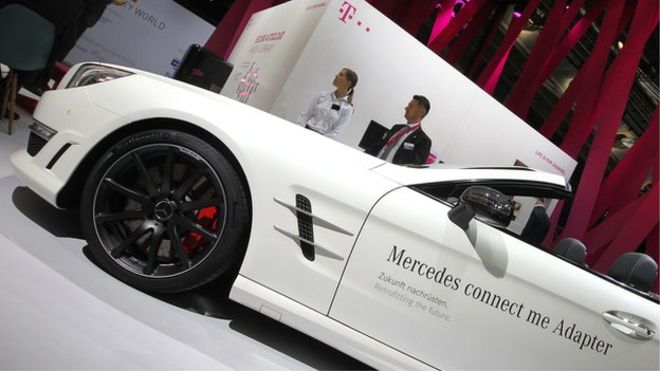
Security researchers have been given the green light to hunt for flaws in car software by US authorities.A ruling will allow users and expert analysts to carry out repairs. But changes such as extracting and selling code would still breach copyright.
Vehicle manufacturers opposed the move, saying repair garages could fix any issues.
The ruling follows claims the right to modify software could have prevented the Volkswagen emissions scandal.
The Library of Congress, which oversees the US Copyright Office, agreed with fair use advocates who argued that vehicle owners are entitled to modify their cars, which often involves altering software, Reuters reported.
‘Protection’
Manufacturers, including General Motors (GM) and Deere, spoke out in opposition. A GM representative referred to a statement from an industry group that said the new rules would weaken safety innovation.
“Sensitive vehicle data could be easily manipulated, altered, or distributed – undetected – if these changes are implemented,” the statement said.
Deere spokesman Ken Golden said the company stands by its earlier opposition. But he added that some systems that transmit data from the vehicle to Deere could still be protected by copyright.
Security researchers also pushed for copyright liability protection because computer programs are “pervasive” in modern machines and devices, including vehicles, home appliances and medical devices.
“We are pleased that analysts will now be able to examine the software in the cars we drive without facing legal threats from car manufacturers,” said Kit Walsh, a staff attorney for the Electronic Frontier Foundation (EFF), which advocated for the rule changes.
Serious reservations
In the wake of the Volkswagen emissions deceit, the EFF said car manufacturers’ software should not be protected from independent scrutiny.
“When you entrust your health, safety, or privacy to a device, the law shouldn’t punish you for trying to understand how that device works and whether it is trustworthy,” Walsh blogged. The new rules must be renewed in three years, he said.
Some US government agencies expressed serious reservations about the new rules, and the Environmental Protection Agency flatly opposed them.
“EPA explained that vehicle modifications are often performed to increase engine power or boost fuel economy, but that these modifications increase vehicle emissions and thus violate the Clean Air Act,” the Library of Congress said in its final rule.
However, the new rules do not allow vehicle owners to break any other laws, the Library said, and will not take effect for a year so the EPA and other agencies have time to prepare.
